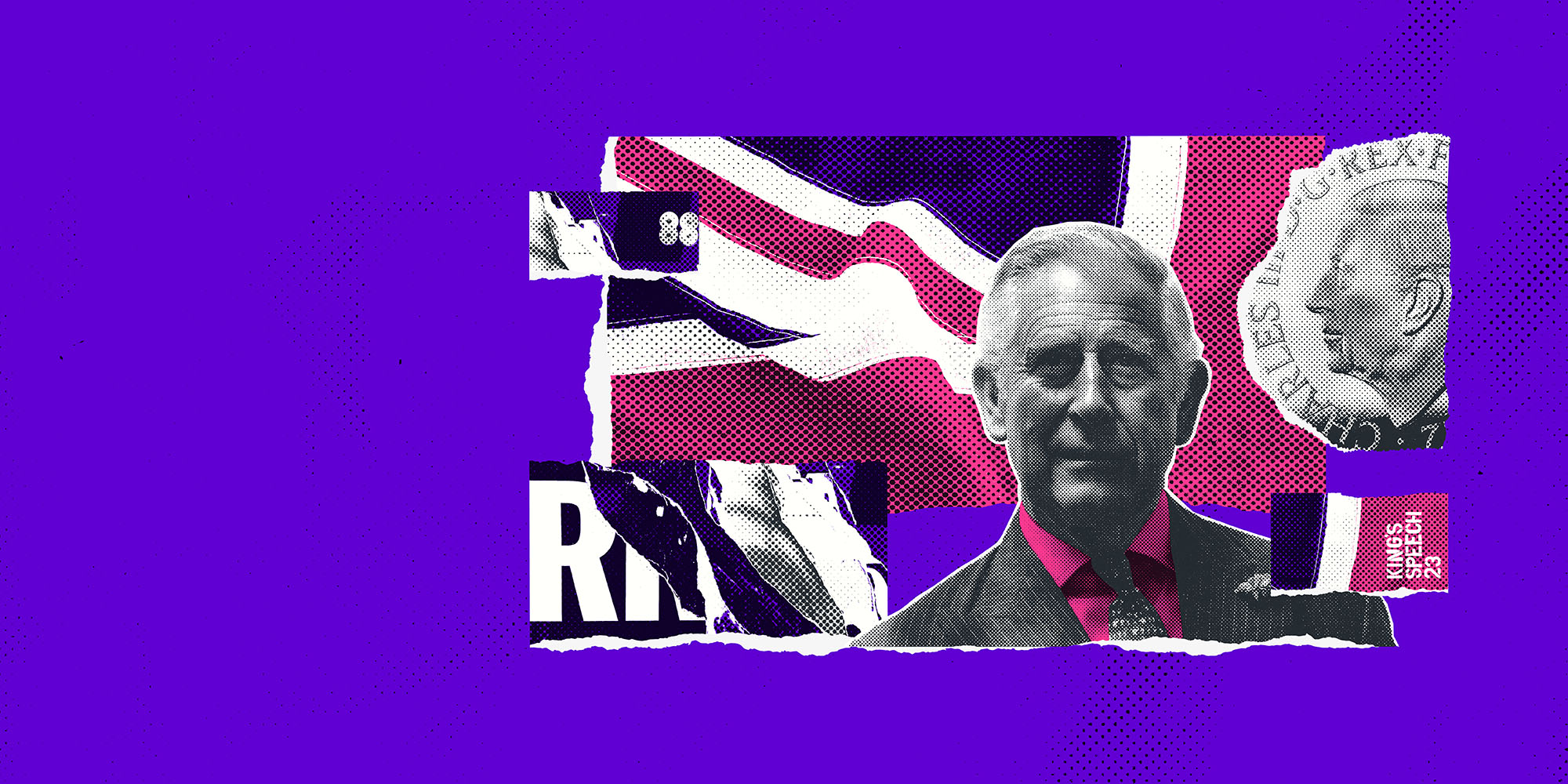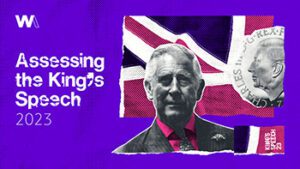
Assessing the King's Speech
Assessing the King’s Speech [PDF]
In an historic Gracious Address to the House of Lords, and his first as Monarch, King Charles III laid out the government’s priorities for the Parliamentary session ahead. The Address focused largely around three themes – growing the economy, strengthening society, and keeping people safe – which Prime Minister Rishi Sunak hopes will frame the next election and create dividing lines with the Labour Party.
Following his speech in October at Conservative Party Conference in which Rishi Sunak set out his stall as the “change candidate”, this King’s Speech was the opportunity to put the meat on the bone of the Prime Minister’s priorities. It was also Sunak’s best attempt at turning the tide on the polls and ensuring this wasn’t going to be his last.
In total, the government announced 21 bills, which the Prime Minister says will make the UK “more prosperous, more innovative, and more secure” – with his Government taking the “difficult but necessary” decisions to change Britain for the better. Sunak wants to be seen on the side of the British public and trusted with bringing down consumer bills, making streets safer and preparing Britain for the future.
Responding to the Address in the House of Commons, however, Labour Leader Sir Keir Starmer roused his benches, suggesting recent by-election victories show that the UK is ready for real change – not “a plan for more of the same” under the Conservatives. Sir Keir specifically called out the Home Secretary, Suella Braverman, and her recent remarks on homelessness – suggesting the government is “devoid of real leadership”.
The most eye-catching legislation announced, and the one which most clearly illustrates the dividing lines between the Conservative and Labour Parties, was the commitment to create an annual system for awarding oil and gas licences through the Offshore Petroleum Licensing Bill. This is a policy which Labour has opposed, but Sunak argues is “pragmatic” as we transition to net zero, helping shore up energy security and cutting the cost of energy for families.
The Labour Party has been clear it will oppose the legislation – which Starmer has said amounted to nothing more than a “political gimmick” – and several opposition MPs in the Chamber accused Sunak of misleading the public on the impact of new licenses. Sunak doubled down on his position, saying that it was his Government who has been honest with the public about the real cost of net zero.
Whilst rail reform didn’t make it into the Address, the government has announced draft legislation to change the structure and operation of rail in Britain, through Great British Railways. Appearing in draft form however, this is very unlikely to happen ahead of the next election. The government will be giving priority to flagship policies that force Labour to show how it will diverge on issues, such as on oil and gas, creating wedge issues ahead of the election.
Beyond those measures, the King’s Speech also signalled reform to the leasehold property system, the introduction of tougher sentencing laws, and a generational ban on smoking and crack down on vapes. Sir Keir said the government has their support on public health measures, including anti-tobacco and vape measures.
Despite positioning himself as the candidate of change, seven of the 21 bills announced (one third) were carried over from the previous session. This points to the joint reality of there being little parliamentary time left before the next election, and the running out of ideas after 13 years in government. These carry-overs included legislation on renters’ reform, digital markets, and data protection.
In addition to what was announced, there were a series of notable gaps, indicating issues that have fallen down the government’s list of priorities. Whilst public services were mentioned, there was no new legislation announced on NHS reform, nor on Sunak’s plans to replace A-levels and T-levels with a new single “advanced British standard” qualification – though this did make it into Sunak’s closing remarks in the Chamber.
As intended by Sunak, dividing lines between both sides of the House were clearly forming as the debate progressed. Going into the next parliamentary session and as the substance of the Address is debated, we’ll see how strong internal factions within the Parties remain.
All eyes will now be on the Autumn Statement and the government’s next opportunity to set the tone for debate and add further detail to these commitments.
